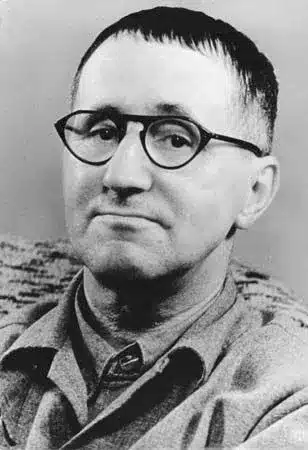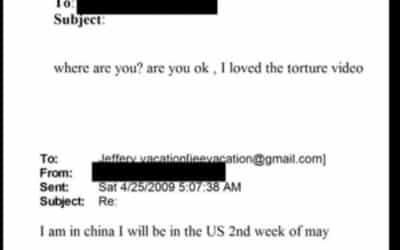In 1935 while in exile Brecht wrote his poem challenging the aristocracy of history. The belief that events and the entire of human existence occurs because of a great man, the dear leader. In contemporary moments, politicians and influential people are looked at with cultish adulation. They are the exemplifiers of perfect power, human gods who may fix, solve and accomplish through their personality but above all else, the power afforded to them by status. A status safeguarded through wealth and the template of governance, to bribe the mercenary minded, zealotic believers who will do all things because they trust and adore the system or leader, the institution and hierarchy and those who are to frightened or apathetic to challenge the status quo. In their failure, the great leader is an effigy. To be blamed, their opponents may usurp them and seek to only replace them. Change is not in liberation from such people, or hierarchies, from power itself. It is only a replacement of another personality or personalities, or version of ruling ideology. .
Different books may be burned. But books shall be burned all the same. The contraband will remain forbidden or change, the censors are never unemployed. The police who enforced for one, shall as easily enforce for anyone who has power. The military will not protect and defend the people, only them. The regime, the state, the movement, the party, the faith, whatever pays them and feeds them with purpose. War abroad for imperial ambition can as easily turn inwards, checkpoints and boots on the street.
The salvation does not come from the cult leader, the prophets of destruction or the heads of state and certainly not from the politburos or parliaments. Politics is violence, every policy requires force. From the point of bayonets or the barrel of guns. Law never inhibits the powerful, it ensures it. Security, safety the catchwords that seduce. Chaos is the frightful frontier. Yet, despite all that power and laws, chaos still reigns whether close to home or in the frontiers where foreign policy bombs the poor and fills unmarked grades. Genocide reigns, whether it’s legally recognized or not. The great and powerful decide as much.
Nearly one hundred years ago, Brecht wrote this poem for the common person. The proletariat and peasant of history who are mostly nameless. We know of Harold and William, but what was the name of the gallant warrior on Stamford bridge? Who fired the arrow that fell the King himself? So long ago, trapped in a tapestry of treasure. But a moment of distant history that has made the world to this day.
“A Worker Reads and Asks”
Who built Thebes with its seven gates?
Books say it was kings.
Did kings hew and haul the rock?
And Babylon razed again and again,
who rebuilt it again and again? Where
in gilded Lima did the builders live?
When the Great Wall of China was finished
and it was evening, where did the masons go?
Monuments commemorate Roman victories. Who
carved them? Who lost when the Caesars won?
Did the Byzantines live only in palaces
and poems? Even when Atlantis sank
into myth, the sea had to drown
men howling for their slaves.
The young Alexander conquered India.
On his own?
Caesar smote the Gauls.
Wasn’t there at least a cook with him?
Philip of Spain wept when his armada
went to the bottom. Did no one else weep?
Frederick the Great won the Seven Years War. Who
won beside him?
A victory per page.
Who cooked the victory feast?
A great man per decade.
Who paid the bill?
So much to read.
So much to ask.”
BERTOLT BRECHT






























